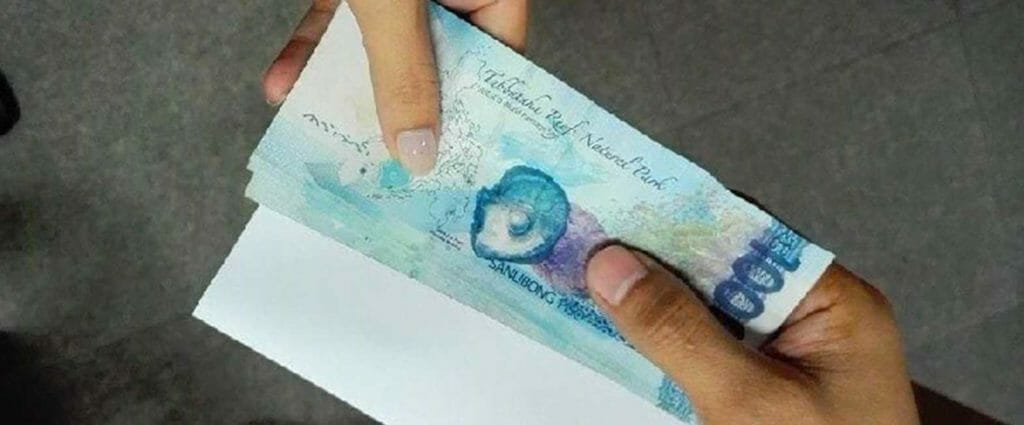Vote buying and the poor

Vote buying, though illegal, remains one of the saddest realities on the ground. Buying votes is an unscrupulous tradition in the Philippines, Taiwan, and Thailand; in Mexico and other parts of Latin America; Senegal and several nations of Africa. It’s a maneuverable tool or dirty trick, if you wish, employed by crooked politicians to put themselves in power by taking advantage of the dire needs of the citizens.
When the Commission on Elections (COMELEC) revealed a possibility of a digital vote-buying come 2022 elections, it also asked for the help of financial cybersecurity experts to prevent politicians from using digital platforms and e-wallet to buy votes. “Vote buying is going techie,” Philippine police chief Guillermo Eleazar himself disclosed and said that corrupt politicians will definitely take advantage of it.
The practice is based on the immoral principle that says the end justifies the means, that any unfair or fraudulent methods may be utilized if the end-result is good. The notion is ancient, and later linked to a philosophy called consequentialism. But the phraseology “the end justifies the means” in itself originated from Sergey Nechayev, a 19th-century prominent figure of the Russian nihilist movement, known for his uncompromising pursuit of social transformation by any means necessary, including revolutionary violence.
To win an election is the end, and to buy votes is the means, and only those with unlimited funds or ill-gotten wealth are determined to use any and all means necessary to win an election. The poor candidate cannot compete with that. Watch Bloomberg’s documentary “The Mystery of a Dictator’s Missing $10 Billion Fortune” released on August 5, 2020 and see American lawyer Robert Swift saying that only those who are heavily funded with a truckload of cash can buy allegiances and votes, even if such a method is illegal and evil.
Robert Swift and other historians say that vote buying in the country started during the Marcos regime, who used the “three Gs of Philippine politics” – guns, goons, and gold. Ten days before the October 1976 referendum, 14 Catholic bishops issued and signed a pastoral statement entitled “A Declaration for Human Dignity at the Polls.” They denounced Martial Law as “a regime of coercion and fear, of institutionalized deception and manipulation” – massive vote-buying included. The prelates said in rather strong words that it would be immoral to participate in a “vicious farce (1976 referendum) that further degrades and debases us and our people.”
Ten years later, in February 1986, Marcos called for a snap presidential election, which the Church called “evil.” In this same presidential election, over-extended Cavite governor Juanito R. Remulla put to wicked use the same principle that his principal Marcos had mastered, that the end justifies the means. The tri-media reported massive vote-buying, the mass transport of flying voters, and the release of prisoners from provincial jails on special furlough. Armed goons and cops harassed NAMFREL observers, who were denied entry in 164 precincts. Nearly all provinces witnessed the same scenario.
Just before the 1986 presidential election, we remember Archbishop of Manila Jaime Cardinal Sin giving his advice to voters, “Take the bait but not the hook,” with an equal impact as the advice of the Reform crusaders in Zambia urging voters to “eat widely but vote wisely.” In Bulgaria, the Roma group told their supporters to “eat their meatballs but vote with your heart.”
So, when one Kasambahay, house helper, asked, Ano po ang inyong mapapayo kung sakaling may mag-alok sa amin na bilhin ang aming mga boto. “What do you advise us in case someone offers money to buy our votes?” Vice President Leni Robredo replied, vote-buying is illegal. Being a lawyer, she knows that vote-buying is an election offense under Section 261 of the Omnibus Election Code, an offence that COMELEC has admitted can’t stop.
Her next utterance was based on her hands-on experiences that brought her to the neediest Filipinos of far-flung areas across the archipelago, where she saw massive poverty and witnessed thousands of families sleep the night with empty stomachs during the pandemic.
(So, if vote buying can’t be stopped), tanggapin ang pera, pero iboto ayon sa konsensya. “For me, accept the money but vote according to your conscience,” she pitched a wise and down-to-earth proposal. Is Robredo’s message a double-barreled warning to candidates: It the end, you lose your money and you lose the election? Most likely, a deterrence, that’s how we call it.
Jose Mario Bautista Maximiano (facebook.com/josemario.maximiano) is the author of MCMLXXII: 500-Taong Kristiyano, Volume Two (2021) and 24 PLUS CONTEMPORARY PEOPLE: God Writing Straight with Twists and Turns (Claretian, 2019).

